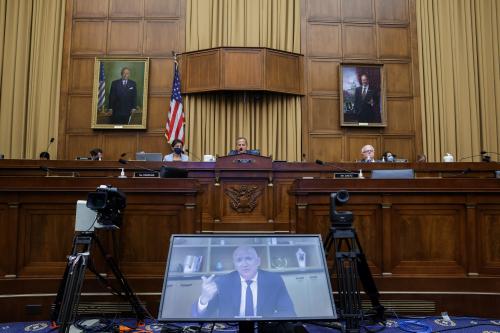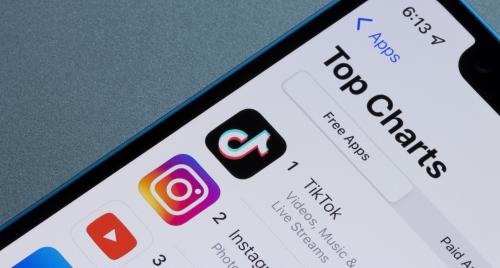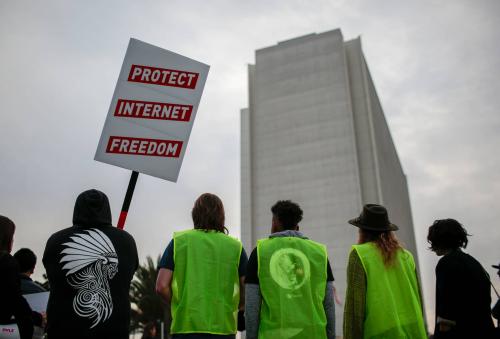At the end of 2020, reporting revealed the dramatic SolarWinds hack of major American businesses and government agencies. Russia broke into leading institutions and cybersecurity experts still are gauging the scope of the damage.
But this isn’t the only hack that Americans need to be wary of. The pandemic has also revealed the weakness of private business and ordinary citizens to protect themselves against malware, phishing attacks, and unwanted intrusions. Taking advantage of the security lapses exposed by remote work, hackers have held whole cities and companies hostage. Ransomware skyrocketed over the last year and exposed our fundamental vulnerabilities.
In this situation, Congress and the Biden administration must act to stop nation-state actors and lone wolf attackers that constantly target Americans. The United States needs a clear plan to combat cyber intrusions and ordinary people need to exercise much better digital hygiene.
In this episode of Tech Tank, Darrell West speaks with Congressman Jim Langevin of Rhode Island on how government, business, and regular people can protect themselves from cybersecurity attacks.
You can listen to the episode and subscribe to the TechTank podcast on Apple, Spotify, or Acast.
TechTank is a biweekly podcast from Lawfare and The Brookings Institution exploring the most consequential technology issues of our time. From racial bias in algorithms to the future of work, TechTank takes big ideas and makes them accessible. In a series of roundtable discussions and interviews with technology experts and policymakers, moderators Dr. Nicol Turner Lee and Darrell West unpack tech policy debates and highlight new data, ideas, and policy solutions. Future episodes will explore the role of technology in election interference, disinformation campaigns, school reopening and broadband access, the digital divide and more. Sign up to receive the TechTank newsletter for more research and analysis from the Center for Technology Innovation at Brookings.







Commentary
PodcastHow to protect yourself from cybersecurity attacks | The TechTank Podcast
February 8, 2021